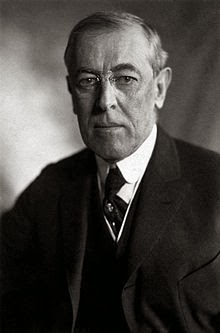The time spent viewing this video may be the best time you ever put into studying what is really going on in your child's classroom now that books have been removed, and each child will have his/her own computer, connected with the central offices' data base. Be sure to check back to this blog for Anita Hoge's excellent submissions related to assessment, data collection, and the use of your child's and your family's most private information: to whom it is being given, and for what purposes.
 |
| http://www.youtube.com/watch?v=E5T-rq06Xe0 |
There were concerns in United States academia, back in 1972, regarding the wholesale use of computer technology in education. Were these concerns put aside due to global corporate and political pressure? Don't forget the late Professor B.F. Skinner, the U.S. father of operant conditioning, referred to the computer as "his box." Quotes from leading American education change agents are below.
First, read this from my book the deliberate dumbing down of america, page 213:
IN 1984 SCHOOLING AND TECHNOLOGY, VOL. 3, PLANNING FOR THE FUTURE: A COLLABORAtive Model, An Interpretive Report on Creative Partnerships in Technology—An Open Forum by Dustin H. Heuston, World Institute for Computer-Assisted Teaching (WICAT) was published (Southeastern Regional Council for Educational Improvement: Research Triangle Park, North Carolina, 1984) under a grant from the U.S. Office of Education, HEW, National Institute of Education. An excerpt from “Discussion: Developing the Potential of an Amazing Tool” in Schooling and Technology follows:
We’ve been absolutely staggered by realizing that the computer has the capability to act as if it were ten of the top psychologists working with one student.... You’ve seen the tip of the iceberg. Won’t it be wonderful when the child in the smallest county in the most distant area or in the most confused urban setting can have the equivalent of the finest school in the world on that terminal and no one can get between that child and the curriculum? We have great moments coming in the history of education.
[Ed. Note: The comment regarding the computer’s role as a “top psychologist” is as disturbing as is the idea of “no one getting between the child and the curriculum.” These ideas lay to rest the publicly stated purpose of the words “parent-school partnerships” which represent a superb example of semantic deception.]Let's step back in time to 1972 and 1981 when plans were being made by leading computer technologists/scientists for the implementation of computers in the schools. I, Charlotte, while working in the U.S. Department of Education in 1981-1983, examined a request for federal funding of Project BEST: Basic Educational Skills through Technology, the federal grant that I leaked to Human Events, for which I was subsequently fired.
In doing so I located, deep in the education archives of the Department, in a separate building, a document (scroll down to end of article) which was referred to in the Request for Funding of Project BEST. This 1972 document, edited by Donald Ely, who subsequently became involved in the 1981 Project BEST which I leaked to the press, is of extreme importance since it reveals the concerns of leading computer experts related to the power of the computer to change one's values, attitudes, and beliefs.
The National Education Association also expressed some of the same concerns outlined in the 1972 paper. Here is the NEA's report, dated 1981, taken from my book, page 174:
THE NATIONAL EDUCATION ASSOCIATION PUBLISHED NEA SPECIAL COMMITTEE ON INSTRUCtional Technology Report which was presented to their 60th Representative Assembly, held July 4–7, 1981. An excerpt from the report related to the problems of programmed learning (computer assisted instruction) follows:
In its coming involvement with a technology of instruction, the profession will be faced again with the challenge of leadership—by example and by effective communication— the challenge of convincing the public that education is much more than treating students like so many Pavlovian dogs, to be conditioned and programmed into docile acceptance of a do-it-yourself blueprint of the Good Life.
The problems associated with technology, in its final analysis, are problems of freedom and control. Whose freedom? Whose control? As a result of its study, the committee urges the Association to view the problems and promises of instructional technology not as a single issue but rather as a broad continuum of issues affecting all aspects of education and teaching—from purposes to products, from political pragmatism to professional practice. Most problems produced by technology have to do with the human use of human beings. In his book, The Illusion of Technique: A Search for Meaning in a Technological Civilization (Doubleday: New York, 1978), William Barrette observes that—
Human creativity exceeds the mechanisms it invents, and is required even for their intelligent direction.... If we try to flee from our human condition into the computer we only meet ourselves there.
Evidently, in 2014, the use of computers has been accepted without examining the ethical questions posed in the 1981 NEA paper or the 1971 paper. One should also refer to Blog Post "Education, Technology, and Individual Privacy" by Larry Grayson, one of the leading computer technology experts in the U.S. Department of Education. Click on:
The following excerpted material from the 1972 document is taken from the deliberate dumbing down of america. The entire document is found in pages A-35-38. I have bolded the most relevant portions of the document.
The following excerpted material from the 1972 document is taken from the deliberate dumbing down of america. The entire document is found in pages A-35-38. I have bolded the most relevant portions of the document.
“The Field of Educational Technology: A Statement of Definition,” by Donald P. Ely, Ed. Published in Audiovisual Instruction (Association of Educational Computing and Technology: Washington, D.C.), October 1972 (pp. 36 ff).
There is no single author of this statement since the definition process involved several hundred people over the period of one year. Kenneth Silber spent more time than any other person and provided continuity through several drafts. Other writers included Kenneth Norberg, Geoffrey Squires, and Gerald Torkelson. Significant contributions were made by Robert Heinich, Charles F. Hoban, Jr., Wesley Meierhenry, and Robert Wagner through discussion papers prepared early in the process. Reactions from related fields were helpful—Desmond Cook (Educational Psychology), Keith Mielke (Telecommunications), and Robert Taylor (Library and Information Science). Each reviewed an earlier draft of the manuscript and met to discuss it. Finally, credit should go to the more than 100 members of the Association of Educational Computing and Technology [AECT, spin-off of the NEA, ed.] who participated at the open hearings held during the Minneapolis convention. And now, the process must go on with each reader. May I have your reactions? Signed by Donald P. Ely, Editor, Chairman, Definition and Terminology Committee, AECT, Branch of the National Education Association.…
Individualized learning requires systematic planning because it may operate with little or no direct intervention by the teacher. If the benefits of individualized and personalized learning are to succeed, it will be necessary to make full use of appropriate technical resources, to shift money saved by this approach into the development of more effective resources, and to make consistent and expanded use of experimental study and evaluation techniques. All of these require the use of the systems approach to succeed....
Within the context of society, the purposes and means of the educational technologist create two value questions: are the means used by the educational technologist neutral, or do they have ends and values built in? Does a person concerned with the means of education also have to be concerned with the ends?… These questions and issues and their resolution by each person in the field is as much a part of the definition of the field as the functions the people in the field perform.
Is technology neutral?
Theoretically, technology in the “pure” state is neutral in its operation, simply the powerful and faithful servant of the society it serves but does not affect. But institutionalized technology in the real world is never that pure. Once embedded in socioeconomic systems, it tends to become self-justifying and self-perpetuating and does indeed affect the society it serves.
Technology neatly separates ends from means, and attempts to become neutral by divorcing itself from value-laden ends. However, if technology is independent of means, then its worth must be measured by the degree of success and the efficiency with which it achieves the goals set before it. Thus, the technological thrust in modern society is to continually refine and strengthen the means whatever the goal.
The net result, which has been pointed out by many scholars of technology, is that the means tend to become the ends. The means which sometimes serve as the end of technology are NOT neutral. As most critics of technology have pointed out, these means have effects—effects which are not neutral at all. Whether the effects are positive or negative is a question for debate, but neutrality is a choice which does not exist.
For example, it is clear that technology has effects on man, but what are they? One position is that technology exerts a subtle force to reduce human beings to standardized components which can readily be assimilated to whatever system is being served. It absorbs them into man-machine systems by robbing them of their humanity and making them human machines.
The opposing position states that technology makes humaneness and difference possible. It creates the options we need for true freedom, and creates a world which allows divergent value systems.
The opposite of the neutral technician is what we might call the concentrated professional. This person realizes that the means make the ends possible, and that cooperation or hindrance makes ends possible or impossible. The concerned professional has a point of view about the ends and then decides whether or not the work being done will make possible positive or negative ends.
If it is decided the work will bring about negative ends, the concerned professional refuses to perform it.
The scientist working on genetic selection and manipulation because “it can help eliminate disease from the human race” and those who have quit working on it because it will “lead to totalitarian domination by a master race” are examples of concerned professionals. Regardless of their position, they have considered the ends of their work and made a decision to work or not based on how they viewed those ends.
It should be clear that the concerned professional does not have to be a “liberal” or a “conservative.” The concerned professional must however, show moral sensitivity to the effect of what he or she does. [emphasis in original]
It does not matter what position an individual comes to as long as it is not “I’ll do it because it can be done.”
We believe that in the American society of the 1970s and beyond the educational technologist cannot afford to be a neutral technician. The field calls for concerned professionals. Some very hard questions must be raised about everything this person is called on to do. The concerned professional must ask how the resources produced or used affect all of society, as well as the scientist’s own life.
The concerned specialist must ask what to do if he/she disagrees with the messages of the resources.
It is less important how an educational technologist answers these questions than it is that they are asked, and that there is concern with the real end of the means.... The educational technologist is not the only person making decisions about the facilitation of learning through the identification, development, organization, and utilization of learning resources. The teacher, curriculum specialist, administrator, content specialist, librarian and the student are involved in the process, too.... It is, therefore, important for the field of educational technology to recognize the “other people” context in which it operates.





